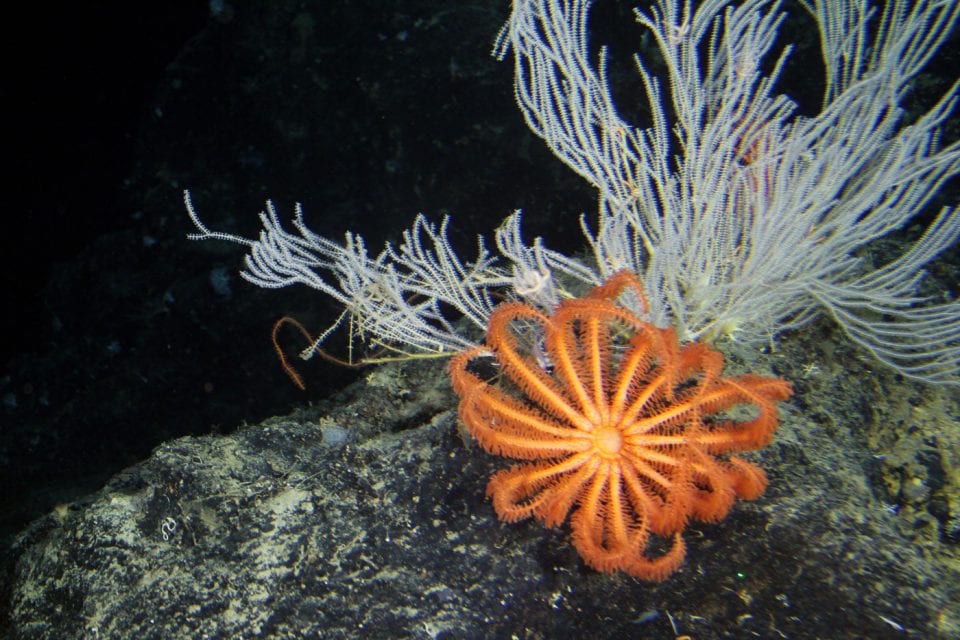White sand beaches and colorful coral reefs have made Roatán an increasingly popular destination. More than a million cruise ships passengers, scuba divers and other visitors are drawn to the tropical island each year. While it’s located just 36 miles off Honduras’ northern coast, the slice of Caribbean paradise feels like it’s a million miles from the challenges that plague the mainland—most of them related to the fact that sixty percent of the population lives in poverty.
Yet Roatán is confronting its own set of issues. The island’s growing popularity has resulted in increased wastewater, pollution and other environmental threats posed by the accelerated growth of tourism, let alone the impact of climate change, which is impacting coral reefs around the world. Nevertheless, Roatan’s offshore reef, remains one of the healthiest stretches of the Mesoamerican Reef system, the largest barrier reef in the Western Hemisphere.
To help Roatán manage and plan for a sustainable future, a team from the George Washington University International Institute of Tourism Studies has been working with conservationists, business owners, local government and community members on a destination sustainability plan that will allow islanders to derive economic benefit from tourism, yet manage problems associated with increased visitation.
“I conducted Roatán's first destination assessment about five years ago, explains International Institute of Tourism Studies Executive Director Seleni Matus. “They’ve made impressive accomplishments since then. The establishment of the Bay Islands Destination Management Organization in 2017, which is ensuring coordination and collaboration among stakeholders for shared management of tourism on the island, has been a key development.”
Roatán’s success is due largely to the active involvement of a number of local NGOs including the Bay Islands Conservation Association, whose mandate is to conserve local resources, and the Coral Reef Alliance, which works with local communities to protect and manage the reef.
In January, Matus returned to Roatán with Masters of Tourism Administration student Taylor Ruoff to conduct a reassessment of the island based on the Global Sustainable Tourism Council (GSTC) Criteria for Destinations. These guidelines, which serve as the global baseline for sustainability in travel and tourism, cover four general areas—cultural, environmental and socioeconomic impacts of tourism, and sustainable destination management.
In addition to the reassessment, Ruoff explains that, “To better understand the current challenges of sustainable tourism development and allow the community to decide on growth priorities for the next five years, we held focus groups with tour operators, attraction managers, NGOs, community groups and other representatives from the local tourism industry. We also conducted interviews with the governor, mayor, hoteliers and key business owners.”
In March, Matus and Ruoff presented their assessment findings and facilitated the development of a five-year community action plan with priority projects that include, for example, initiatives around wastewater management, improved zoning and food safety regulations, support for local entrepreneurs, and the establishment of an artisan-designated marketplace and culinary festivals like this summer’s two-day Roatán International Shrimp Festival.
Concluded Ruoff: “The passion demonstrated by local community members around the importance of natural and cultural heritage conservation— along with seeing the progress they’ve made over the last five years— is enormously inspiring." While Ruoff concedes that there’s still a great deal more to do to make the destination sustainable for the long term, she is optimistic that this community is up for the challenge, thanks to the collaboration and dedication of local leadership, community groups, business owners and NGOs.
This GSTC Destination Assessment is supported by the GSTC, the World Wildlife Fund, and the Deutsche Gesellschaft für Internationale Zusammenarbeit. It is funded by the German Federal Ministry for Economic Cooperation and Development and Royal Caribbean Cruises Ltd. to promote destination stewardship and cruise tourism sustainability.

